Your basket is empty

Should I Start Adding Super Greens to My Dog’s Diet?
January 25, 2023 7 min read
Adding super greens to your dog’s diet can have a wealth of health advantages, but they can be harmful if you dose them incorrectly or choose the wrong products.
It's crucial to do your research before you give your dog supplements containing the five main super greens (spirulina, chlorella, wheatgrass, barley grass, and kelp), so you can keep your pet safe and healthy.
We’ll be covering everything about super greens below, including benefits, risks, and other important information.
Spirulina
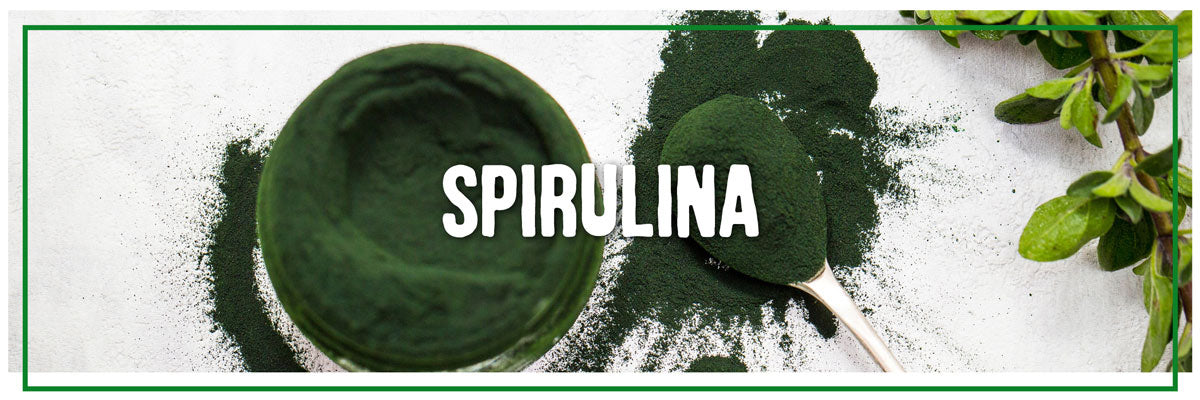
Spirulina is part of the cyanobacteria family, but it was originally thought to be a type of algae. Like plants, spirulina produces its own food via photosynthesis.
It’s considered a “superfood” as it contains over 50% protein and is rich in vitamins, amino and omega-3 fatty acids, trace minerals, and enzymes.
It’s both advantageous to dogs and humans as it can be used to treat cancer symptoms, inflammation, bacterial or yeast overgrowth, nutritional deficiencies, and much more.
Benefits of Feeding Your Dog Spirulina
Adding spirulina to your dog’s diet is a great way to give their health and immune system a boost. This bacteria provides many advantages to your pet, including:
-
Assists with digestion
-
Helps relieve allergies
-
Eases inflammation
-
Improves the immune system
-
Enhances thyroid function
-
Contains anti-cancer properties
Dogs with skin allergies, joint pain, or digestive issues in particular can benefit from spirulina, alongside those that need a little extra TLC.
Risks of Spirulina in Dogs
While spirulina can be beneficial to your dog’s health, it is not without its risks, especially if you use the wrong type of spirulina or feed it excessively. It’s important to know the dangers of feeding spirulina to your dog so you can prevent them from occurring.
Only Feed Supplements Designed for Dogs
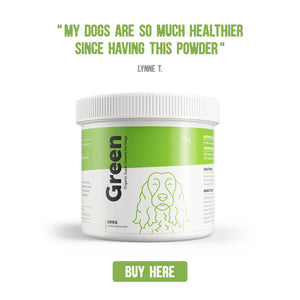 Firstly, you should never feed your pooch human supplements that contain spirulina. Only give your dog supplements that are made specifically for canines, like Green, our organic super greens supplement for dogs.
Firstly, you should never feed your pooch human supplements that contain spirulina. Only give your dog supplements that are made specifically for canines, like Green, our organic super greens supplement for dogs.
A study on an 11-year-old pug who had ingested an over-the-counter blue-green algae supplement showed high levels of toxicity as well as symptoms like lethargy, poor appetite, and general discomfort.
Green is formulated especially for dogs, so it is completely safe for your pooch. It contains a nutritious blend of five super greens: spirulina, chlorella, wheatgrass, barley grass, and kelp.
All of these ingredients work together to keep your dog in tip-top shape by boosting their digestion, immune system, and gastrointestinal health. It also helps control allergies and promotes cellular health.
Check the Source of the Spirulina
Before you purchase spirulina supplements for your dog, check the source of the spirulina and the reputation of the company. Spirulina should be grown outdoors in a safe, pollution-free, and bright environment.
However, some companies produce spirulina in ocean water, rivers, or natural waterways, especially in countries where the production of spirulina isn’t strictly regulated. This increases the risk of it being contaminated with harmful bacteria, liver toxins, and heavy metals.
In addition, these types of companies may mislabel spirulina as other types of blue-green algae, which is extremely dangerous.
It’s never worth the risk of buying low-quality or cheap spirulina products. Make sure you check where you’re buying the supplement from and research the company so you know if they are trustworthy.
Don’t Overfeed Spirulina
Like with most foods, feeding your pooch too much spirulina will do more harm than good. An overdose of spirulina can result in digestive issues like diarrhoea, nausea, and vomiting, as well as rapid heartbeat, fatigue, and weakness.
If your dog has ingested an excessive amount of spirulina, take them to a vet immediately. Be sure to check the manufacturer's recommended feeding instructions for the brand of spirulina you use.
When Should Spirulina Not Be Given to Dogs?
Dogs with autoimmune disorders like lupus or rheumatoid arthritis should not be given spirulina as it can stimulate their immune system and make their condition much worse. In addition, if your pooch is on medication, you should speak to your vet before you add spirulina to their diet.
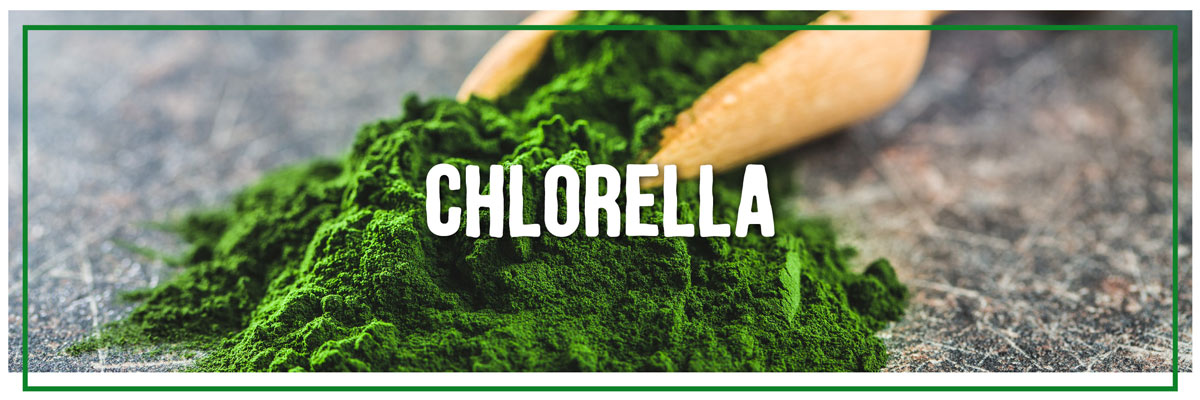
Chlorella
Chlorella is a species of freshwater, single-celled green microalgae that grow well under high light conditions.
It’s loaded with more than 50% protein and a wide range of vitamins and minerals, including vitamin C, iron omega-3, beta-carotene, lutein, and zeaxanthin.
Benefits of Feeding Your Dog Chlorella
There are an array of benefits of feeding your dog chlorella, but some of the most advantageous are:
-
Helps prevent chronic disease
-
Slows down ageing
-
Improves immune system health
-
Enhances natural detoxification
-
Relieves arthritis pain
-
Reduces bad breath
-
Supports eye health
-
Improves skin/coat health
Dogs with arthritis, foul breath, skin allergies, and anaemia, alongside those that are slowing down as a natural part of ageing, can find relief with the aid of chlorella.
Risks of Chlorella in Dogs
There are a couple of risks involved with feeding chlorella, but these are easily avoided as long as you don’t overfeed it and are aware of any allergies, sensitivities, or health conditions your pooch has that could be negatively impacted.
Dogs who are allergic to mould or iodine can have adverse reactions to chlorella, so if you know your pet is sensitive to either of these, avoid feeding it.
Overfeeding chlorella can cause digestive issues like vomiting, diarrhoea, and gas, so check the recommended dosage instructions for the brand you use.
Some pooches can experience side effects after eating chlorella, including constipation, flatulence, diarrhoea, and bloating. These usually surpass once your pet’s body has become accustomed to chlorella, but speak to your vet if their symptoms persist.
When Should Chlorella Not Be Given to Dogs?
As chlorella is high in iodine, it should not be given to dogs with thyroid issues. In addition, chlorella may react with other medications your pet is on, including blood thinners and treatments for autoimmune disorders or cancer.
Pregnant and lactating dogs should also not be fed chlorella to be on the safe side.
Speak to your vet if your dog suffers from any of the above before you add chlorella to their diet.
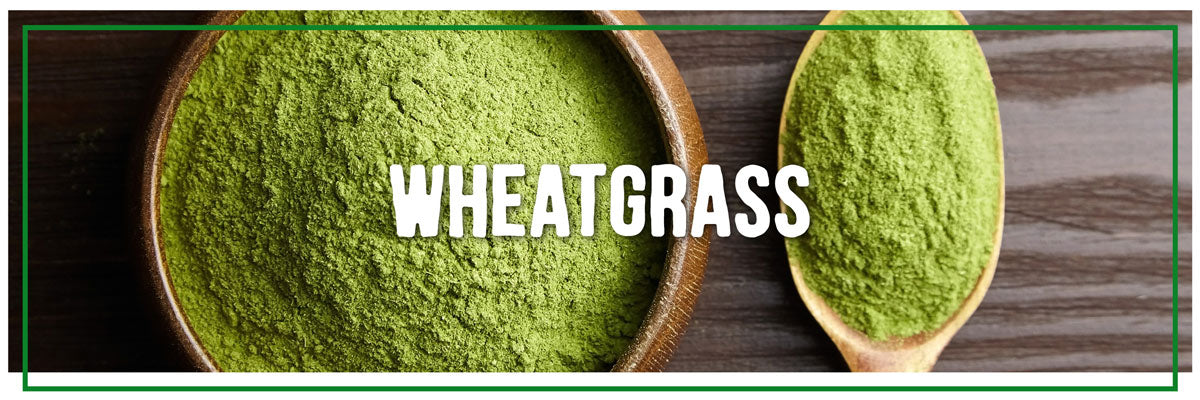
Wheatgrass
You may already be familiar with wheatgrass as it’s commonly used in human health supplements or in food and drinks due to its high nutrient value. It is the leaves of the wheat plant, but unlike actual wheat, it is completely gluten-free.
In addition to being beneficial to human health, it is also great for canine health! Wheatgrass is rich in chlorophyll, magnesium, potassium, antioxidant nutrients, amino acids, and vitamin B complex, C, E, and K.
Benefits of Feeding Your Dog Wheatgrass
There are a lot of benefits to feeding your dog wheatgrass, such as:
-
Helps freshen breath
-
Boosts energy levels
-
Helps control body odour
-
Assists with digestive issues
-
Eases constipation
-
Rich in antioxidants and antiseptic properties
If your dog has bad breath or body odour, digestive disorders, low energy levels, or regularly suffers from constipation, wheatgrass can help with these issues.
Risks of Wheatgrass in Dogs
Wheatgrass is completely safe for dogs, but it can lead to loose stools, vomiting, and an upset tummy if it is fed excessively. Other than that, there are no risks to adding it to your dog’s diet.
When Shouldn’t You Feed Your Dog Wheatgrass?
There is currently no evidence to suggest that wheatgrass interferes with certain conditions or medications in dogs, so canines of all ages can take advantage of this superfood.

Barley Grass
Barley grass is created from the leaves of barley plants and is quickly rising in popularity as a supplement for dogs and humans.
While barley grass seeds can be dangerous to dogs, the leaves are filled with protein, vitamins, minerals, amino acids, and both soluble and insoluble dietary fibre. It contains a huge range of vitamins like vitamin B complex, C, E, K, potassium, magnesium, and much more.
Benefits of Feeding Your Dog Barley Grass
In appropriate amounts, offering your pooch barley grass can offer health benefits like:
-
Improved digestion
-
Dental support
-
Increased energy levels
-
Body detoxification
-
Immune system support
Dogs that suffer from poor digestion, low energy levels, and stinky breath can benefit from barley grass, alongside those that need a boost in immunity.
Risks of Barley Grass in Dogs
Similarly to other super greens, take care not to feed your dog too much barley grass as it could cause digestive problems like vomiting, nausea, and diarrhoea.
When Shouldn’t You Feed Your Dog Barley Grass?
It’s a good idea to speak to your vet before you add supplements to your dog’s diet, including those that contain barley grass. This is especially important if your dog is currently taking medication or has a health condition.
There is little information on whether barley grass interacts with certain medications, so it never hurts to be careful.
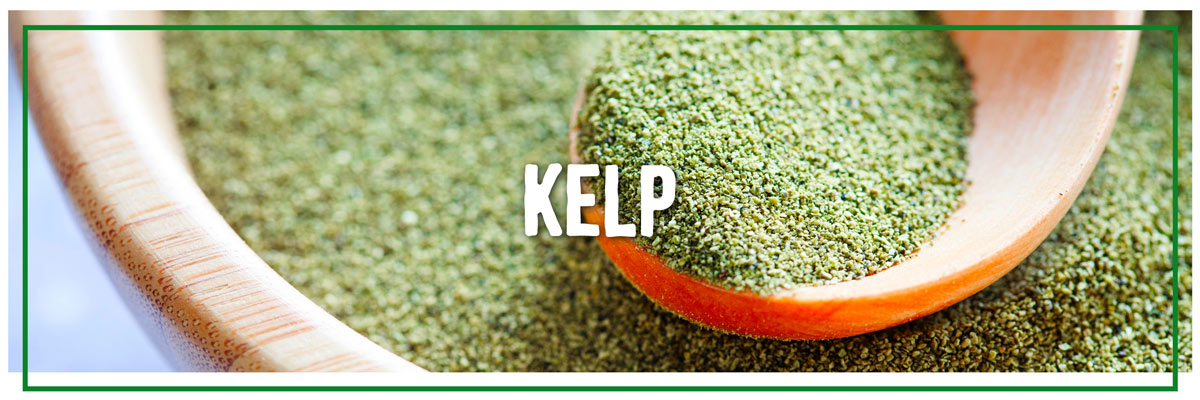
Kelp
Kelp is a type of seaweed that is packed with goodness and nourishment, both for humans and dogs. It’s high in protein (around 25%), low in fat, and rich in iodine, which is ideal for thyroid function.
It contains more than 60 different minerals, vitamins, and trace elements, in addition to 21 amino acids.
Benefits of Feeding Your Dog Kelp
Due to its high nutrient density, kelp can be a great addition to your dog’s diet as it can offer benefits like:
-
Reduced itching and inflammation in skin allergies
-
Prevention of tartar and plaque buildup
-
Improved regulation of thyroid gland activity
-
Weight loss and a faster metabolism
-
Digestive support
-
Tissue repair
If your dog has dental issues, skin allergies, or a digestive disorder, they can greatly benefit from kelp.
Risks of Kelp in Dogs
As advantageous as kelp can be to your dog’s health, make sure you don’t overfeed it as it can result in lethargy, watery eyes, runny nose, and an upset tummy.
In addition, adding too much kelp to your dog’s diet, especially in a short period, can increase the risk of hypothyroidism due to its high iodine content.
When Shouldn’t You Feed Your Dog Kelp?
Like spirulina, kelp contains a huge amount of iodine. While this element is vital for your dog’s thyroid health, too much of it can make pre-existing thyroid problems worse.
For this reason, canines with thyroid issues should not be given kelp as it can impact thyroid function and cause (or aggravate) hypothyroidism.
***
Final Thoughts
Adding super greens to your dog’s diet can drastically improve their health and well-being. But, as always, speak to your vet before you give your dog supplements or make any adjustments to their diet.
Supergreens like spirulina and kelp may be unsuitable for some dogs, especially if they have an existing health condition or are on certain medications. Remember to only use supplements designed specifically for dogs like GREEN, which is tailored just for canines.
Once you have approval from a vet to add super greens to your pooch’s diet, take care not to overfeed them. If your dog has an adverse reaction to a supplement or you’re worried in general, contact your vet immediately.
Also in Pet Advice
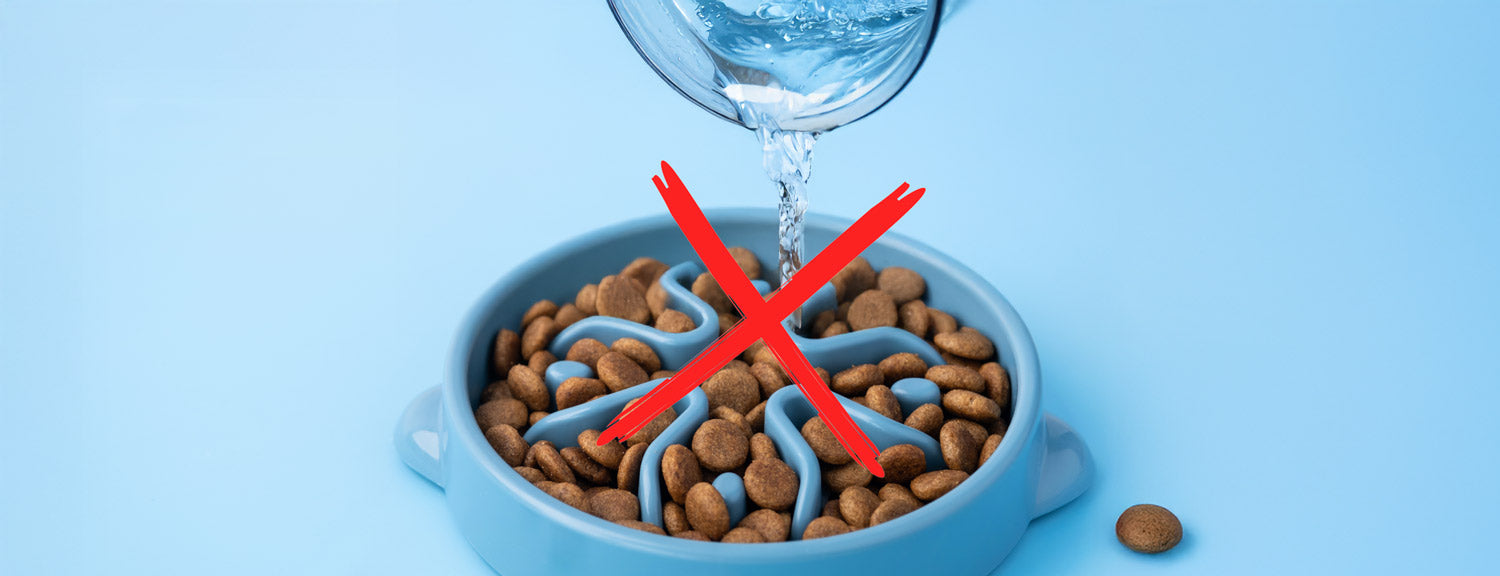
Should You Add Water to Your Dog’s Kibble? Here’s What the Science Says
August 14, 2025 7 min read
Should you add water to your dog’s kibble? Discover the science-backed pros, cons, and better alternatives like bone broth and fresh food to improve hydration, digestion, and overall canine health...
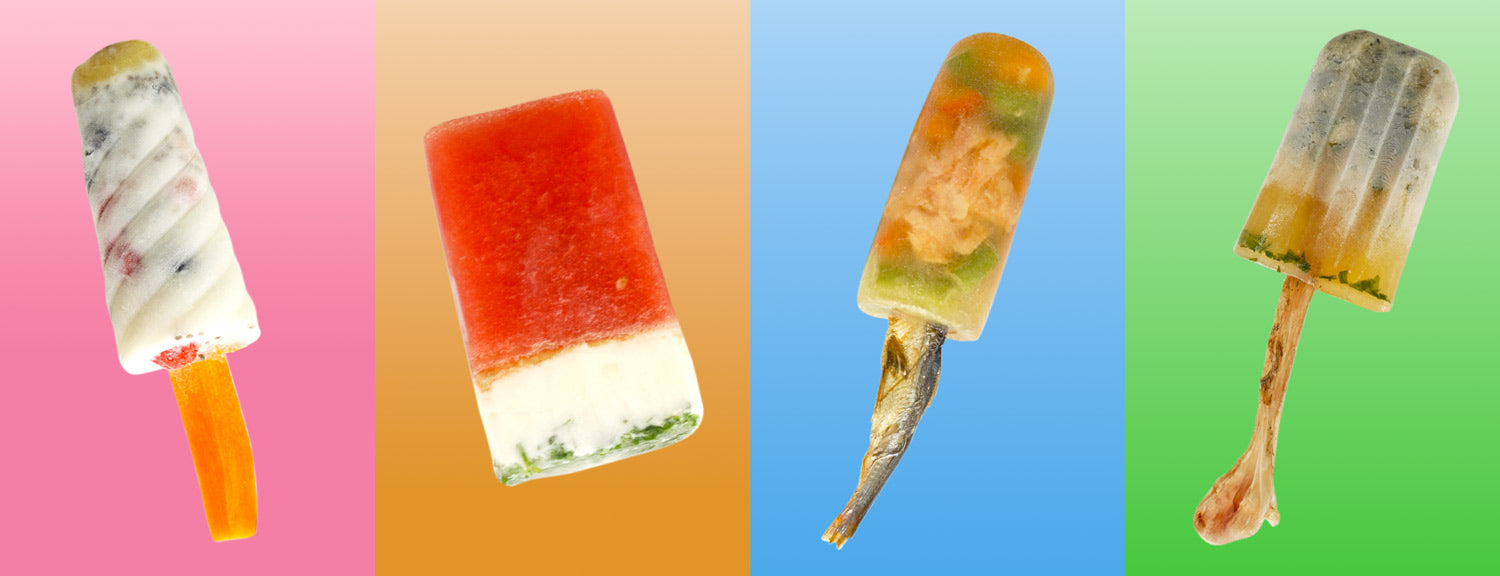
DIY Frozen Dog Treats Your Pup Will Love
June 27, 2025 4 min read
Summer heat can be dangerous for dogs, making hydration more important than ever. Learn how to spot signs of dehydration, boost your pup’s water intake, and create fun, frozen recipes to keep them happy and healthy all season long.
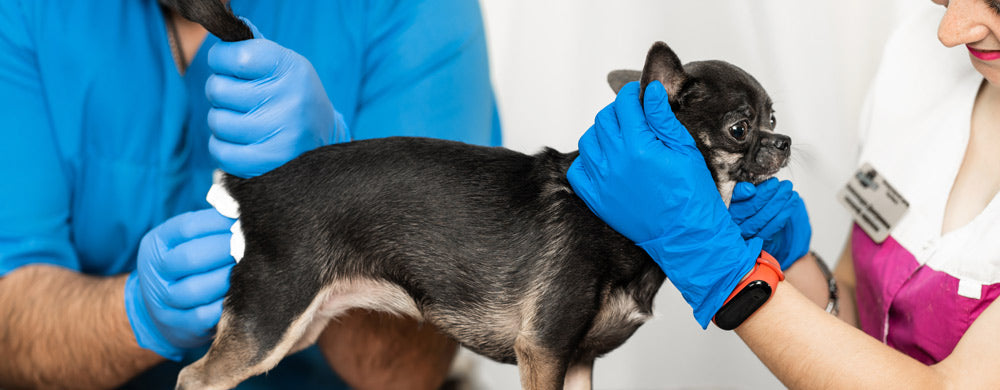
Why Is My Dog Scooting? Common Causes and How Diet Can Help
May 09, 2025 4 min read
If your dog is scooting or smells fishy, it could be due to blocked or irritated anal glands. Learn what causes blocked anal glands, which dogs are most at risk, and how simple dietary changes—like adding fibre and anti-inflammatory nutrients—can help prevent recurring problems.
Search our shop
In this article
